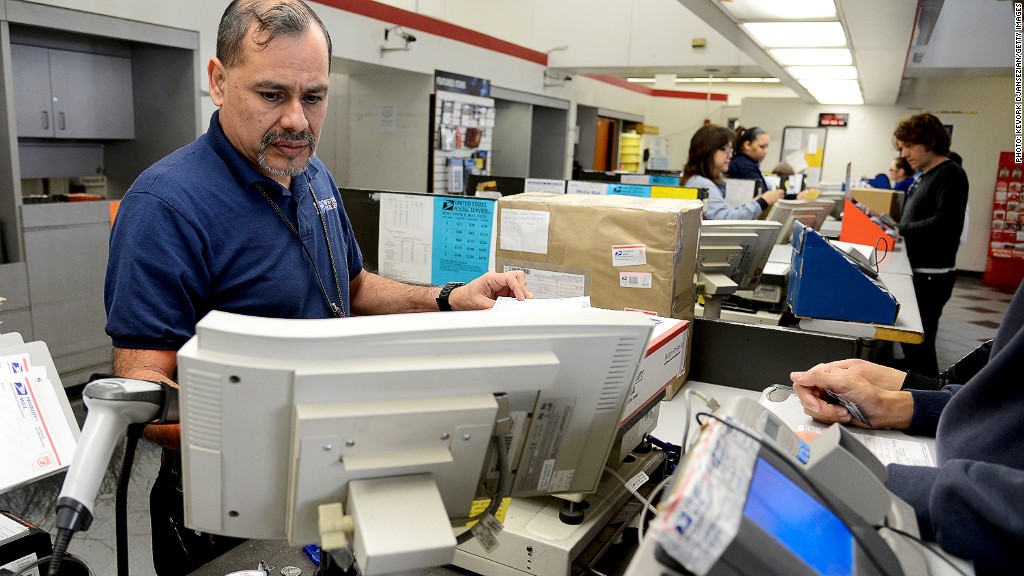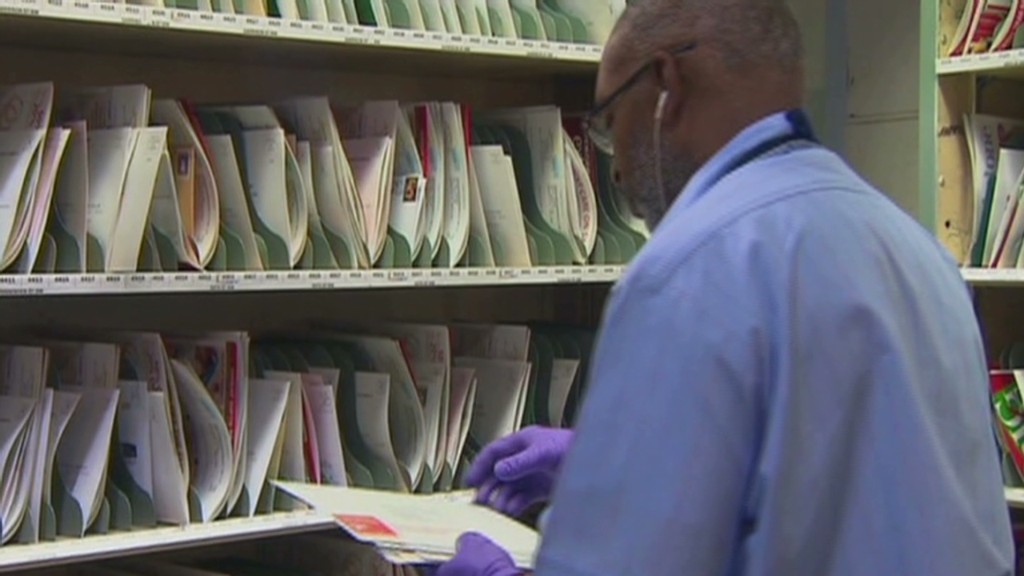
If it weren't for Congress, the U.S. Postal Service might not be doing so badly.
In the three months ended Dec. 31, the agency lost $1.3 billion -- considerably less than the $3.3 billion lost in the year-earlier period.
The service was hurt as the volume of first-class mail, which most consumers use to pay bills and stay in touch, decreased by 4.5.%, said USPS chief financial officer Joseph Corbett. But it got help as shipping and package volume for the busy holiday season increased 4% compared to the prior year.
Still, the service is in trouble. The key culprit remains a 2006 congressional mandate, under which it has to pre-fund healthcare benefits for future retirees. The USPS has been borrowing billions of dollars from taxpayers to make up for the shortfalls.
Without the prefunding requirement, the agency would have posted a $100 million profit.
"The encouraging results from our holiday mailing season cannot sustain us as we move deeper into the current fiscal year and face continuing financial challenges," said Postmaster General and CEO Patrick Donahoe.
The narrowed losses this past quarter were due to the fact that the USPS is only forced to make one payment to prefund retiree healthcare benefits in the fiscal year that began Oct. 1. The year before, the agency had to make two payments after Congress allowed one to be delayed from fiscal 2011.
Related: Postal Service to end Saturday mail service Aug. 5
Unions argue that no other agency or private business is required to make such a payment, and have been pushing Congress to do away with the mandate. But so far, no legislation to help the agency that has advanced in Congress would dump the requirement.
"Since pre-funding went into effect, it accounts for more than 80% of the agency's red ink," said Fredric Rolando, president of the National Association of Letter Carriers. "The USPS should focus on urging Congress to reform the pre-funding requirement, not on a counterproductive slashing of services."

The situation turned particularly dire last year -- the agency twice defaulted on payments totaling $11 billion, and it exhausted a $15 billion line of credit from the U.S. Treasury. The agency said it expects to skip that payment again.
The Postal Service is, by law, an "independent establishment" of the executive branch. The agency doesn't normally use tax dollars for operations, but it has exhausted a $15 billion loan from Treasury.
The Postal Service on Wednesday unveiled a plan to end Saturday delivery of mail, a move which is expected to save $2 billion a year, a drop in the bucket compared to the $16 billion loss the organization reported for 2012.
It remains unclear whether the Postal Service has the power to end Saturday service on its own without Congress' help. Senate Majority Harry Reid questioned the legality of the the agency's move on Thursday.
But Donahoe insisted the agency could make the move, noting he'd be willing to work with Congress when they hammer out a budget to keep government operating in the next few weeks.
"We feel our interpretation gives us the ability to move ahead, but we still have time before this (current budget) runs out so that we can work the differences out," Donahoe said.


